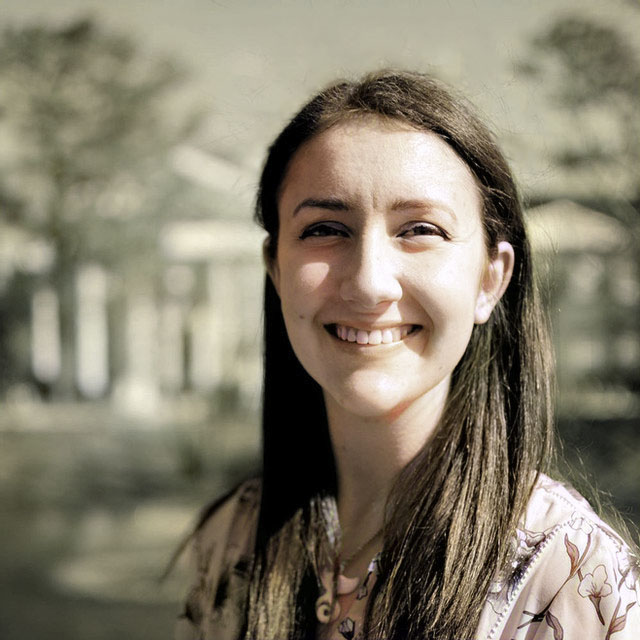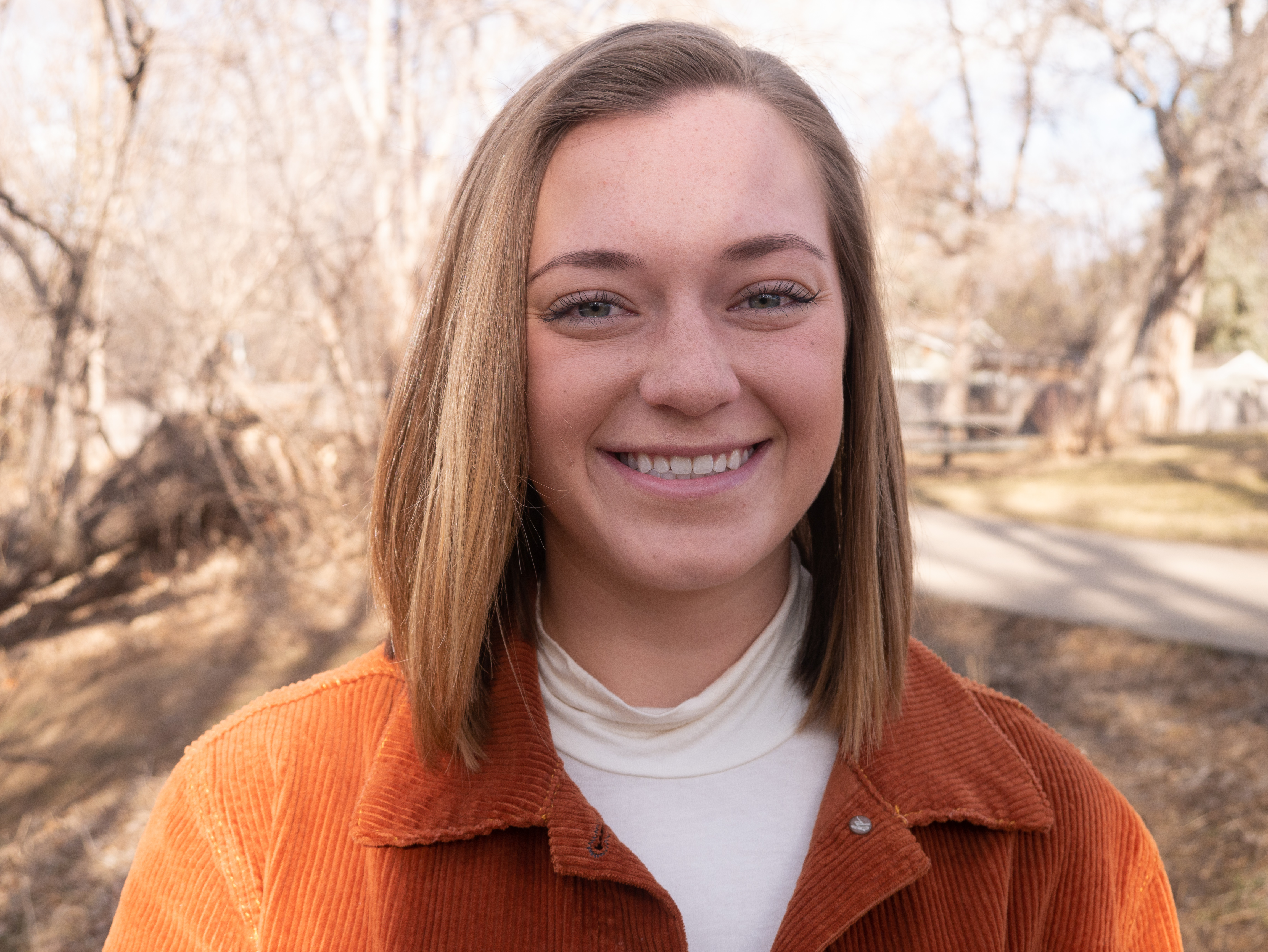
Mitchell Internship: Past Interns
2021 Mitchell Scientific Diving Research Intern (held over from 2020 due to Covid)
 Krista Laforest
Krista Laforest
University of North Carolina, Wilmington
Read an excerpt from Krista's final report below or download the full pdf.
After months of being landlocked, itching for the world to reopen and longing to return to the sea, I was shocked to receive a call from the Our World Underwater Scholarship Society and overjoyed to hear that I had been selected as the AAUS Mitchell Scientific Diving Research Intern! Despite COVID-19 restrictions, I would be part of a research group from Florida State University (FSU) spending the summer conducting field research on coral reefs in Bonaire. There were countless unknown variables about how we would accomplish international travel, but there was no doubt that I was ready to begin this adventure!
Before departing in May, I would need to travel to Tallahassee to complete the onboarding process as a scientific diver for FSU. After meeting Chris Peters, the FSU Academic Diving Program’s Dive Safety Officer, for a swim test, I joined his scientific diving class for a day of checkout dives at Cherokee Sink, a freshwater spring near campus. For someone who spent most of their early career as a Divemaster in quarries, I was right at home in the chilly murky waters. During that weekend, I was able to meet Lena, an undergraduate student who would be joining the team in Bonaire. As we emerged from the water into a crisp 50-degree day, we smiled, knowing we were headed for warmer, crystal-clear waters!
I met the rest of the team as most people do lately – via Zoom. After countless calls to plan our flights, review travel requirements for entering Bonaire, and discuss what we hoped to accomplish over the summer, we were finally a week away from starting to conduct research! There was just one hiccup – our flight had been canceled and all flights from the US to Bonaire were suspended for another month. It was back to the drawing board, and back to Zoom, as we rallied to find another route to Bonaire. There were still flights from Florida to Curacao, and from Curacao to Bonaire on a small local airline. We
determined that we could take a COVID-19 PCR test three days before our arrival in Curacao, then take a rapid test during our layover to meet the requirement of getting an antigen test within four hours of our departure to Bonaire on a small twin engine “island hopper.” Once we had finalized our new itineraries, we packed our bags and prepared for our trip.
After a flight from Boston to Miami, I finally met Josh, Ethan, and Allie – graduate students at FSU – in person, before getting on the flight to Curacao. We waited in anticipation for our negative COVID-19 test results at Hato Airport in Curacao, before finally boarding our 20-person plane to Bonaire. As we approached the island, reality finally sank in: this was our home for the summer, and I could not be luckier to do research underwater for a living!
During the summer, Josh, Lena and I were fortunate enough to witness grooved brain coral, Diploria labrynthiformes, spawning in May. As we hovered over these colonies, waiting for them to release their gametes into the water column to create the next generation of corals to settle onto the reef, we noticed something equally interesting. Foureye butterflyfish (Chaetodon capistratus) which are thought to swim in monogamous pairs and defend a territory in a similar way as parrotfish, were swimming in groups of 20 or more, and racing from each brain coral colony around the reef, in hopes to eat the gametes released upon spawning as a quick snack before heading to their resting place at night! After seeing this, Lena and I decided to make a personal project out of this observation. For the remainder of May we poured through academic journals, hoping to learn more about butterflyfish territoriality, diet, and movement patterns before conducting our research in July when the grooved brain corals were predicted to spawn again.
The opportunity to be the 2021 Our World Underwater Scholarship Society AAUS Mitchell Scientific Diving Research Intern has been a whirlwind adventure! I am incredibly grateful that I was selected to represent OWUSS and AAUS along with the other 2021 interns. I was able to witness a thriving reef community for the first time this summer and learned more about fishes than I thought possible in such a short period of time. I have learned valuable lessons and skills – both above and below the surface – met incredible people, and advanced my career in marine ecology. While I am sad that my time as the OWUSS AAUS intern has come to a close, I am excited to continue my journey in coral reef ecology as I begin my master’s in marine biology at Nova Southeastern University this fall and work with Florida SeaGrant as the Coral Health Communications Intern! I believe that the experiences I gained this summer will allow me to provide a unique perspective at the ecosystem level that can be used to restore the Florida Reef Tract.
2019 Mitchell Scientific Diving Research Intern
 Liza Hasan
Liza Hasan
University of Colorado, Boulder
Liza Hasan, 22, is from Park Ridge, IL. She will be graduating from the University of Colorado, Boulder, in May, 2019 with a degree in Ecology and Evolutionary Biology. During her time at the University of Colorado, she has had the opportunity to conduct research on alpine plant ecology, prairie dog spatial dynamics, and greenback cutthroat trout restoration.
Liza has always loved being around water and was first able to explore the underwater world in 2011 when she was certified as an Open Water Diver. Despite going to college in a land-locked state, Liza has found ways to make it back to the ocean. During the Fall 2017 semester, she studied abroad at the CIEE Research Station Bonaire, Dutch Caribbean. She took courses in coral reef ecology, marine conservation, and had the opportunity to conduct an independent research project on the impact of community structure on the branchial crown area of feather duster worms. While on Bonaire, Liza also earned her Advanced Adventure, Rescue Diver, and AAUS Scientific Diver certifications.
Liza has continued to dive in Colorado as a volunteer diver at the Denver Downtown Aquarium. She is excited and honored to return to research diving this summer as the AAUS Mitchell Scientific Diving Research Intern. She is thrilled about the opportunity to continue expanding her marine research experience and learn from the members of her research team.
University of Alaska will host this year’s Mitchell intern. Liza will be working with Brenda Konar on examining how watersheds with different amounts of glacial cover impact coastal communities.